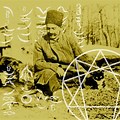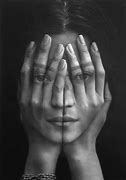



Fragrant Clouds of Purity and Protection - 2
Many of the incense ingredients used throughout history and today are healing agents - myrrh, frankincense, cinnamon, clove , hyssop, sage, cedarwood, juniper, cypress and pine, amongst others. No wonder then, that incense, and fragranced ointments and salves which may well have conferred health, should be seen as 'protective' - a beneficent agent of the deity - and this was especially the case when it was thought that physical health was inextricably linked to spiritual health.
The unfortunate Europeans who suffered during the plagues of the fourteenth to seventeenth centuries must have been sure they had in some way transgressed when they read this in the Old Testament: If thou wilt diligently hearken to the voice of the Lord thy God, and wilth do that which is right in his sight, and wilt give ear to his commandments, and keep all his statues, I will put none of these diseases upon thee, which I have brought upon the Egyptians: for I am the Lord that healeth thee.'
The agents for healing at this time, these people's saving grace came in the form of fragrances and perfumers. Fragrant materials became highly sought after, especially rosemary, cloves, garlic, rue, melissa, rose, lavender and juniper, and were vital protection when gathering with other people, in church for example. Around 1700, Daniel Defoe described one such scene in London: 'the whole church was like a smelling bottle; in one corner it was all perfumes; in another aromatics, balsamics, and in a variety of drugs and herbs; in another salts and spiritus.'
In 1646 France, Arnaud Baric gave a full description of the role played by perfumers who, under the lead of 'the health captain', went through houses fumigating them with perfume burnt on coal fires. At the end of the long day, the perfumers were themselves cleansed by standing in the 'steaming room' - a cloth tent with perfume material boiling away in a pot.
It is a curious thing that so many fragrant plants should be protective to the health.. It is almost as if we are invited by the creative force of the universe to examine them, taste them, put them in our food, enjoy their aroma, and in other ways make use of them. The healing properties of many fragrant plants were of course well known in ancient times, which may account for the wide spread practice of aromatically cleansing strangers or guests before allowing them into the village or house.
A hundred years ago in central Borneo, Blu-u kayans burnt bundles of fragrant plehiding bark when strangers arrived, to drive away any accompanying 'evil spirits'. In Turkey, Afghanistan and Persia visiting guests were first cleansed by burning branches of fragrant plants or incense, while aboriginal Australians saved their hosts the trouble and came with their own lighted bark or fragrant burning sticks.
As well as fragrance, fire and loud noise have been widely employed, as J.G. Frazer put it in The Golden Bough, 'for the purpose of disarming the strangers of their magical powers, of counteracting the baneful influence which is believed to emanate from them, or of disinfecting, so to speak, the tainted atmosphere by which they are supposed to be surrounded'.
In the contemporary world, the practice of aromatic cleansing is still ubiquitous in the Middle East, where it is perceived as a hospitable kindness to guests. In tents in the desert, a few smaller pieces of aromatic resin may be put on the brazier, while in towns you are more likely to be greeted with rose water, sprinkled from a long-stemmed gulabdan.
Guests in Turkish households have lemon-scented cologne sprinkled on their hands, so it can be wiped on the arms and neck. This fragrant nicety is also offered by the conductor to passengers on long-distance buses. Fragrance is also widely used to cleanse buildings, especially those used for spiritual practices.
When Saladin retook the Mosque of Omar in Jerusalem from the Christians in 1187, he had it purified with rose water; and when Mohamet II captured the Church of Santa Sophia in Constantipole in 1453 and made it a mosque, it was likewise first treated with a rose. Sage is the most sacred herb of the Yuwipe Native American Nation, and it is this which covers the floor of the medicine man's house as he goes about the purification process.
Fragrance and spirituality have always been inextricably linked. In Mesopotamia 4,000 years ago, incense was used both to attract the goddesses and gods, and to repel malevolent spirits. In Muslim terminology, jinn are said to be an order of spirits which can assume human and animal form and exercise negative influences over people, and pirs are people brought in deal with them - often incorporating the inhalation of jasmine oil as part of the proceedings.
Reference: The Fragrant Heavens: Valerie Ann Worwood
Articles-Latest
- Using Vibrational Aromatherapy In Treatment
- The BI-Gendered God-She-male Gods & The Roots of Christianity
- Geometry and Myth-She-Male Gods & the Roots of Christianity
- Muslim Council Demands Investigation Into Islamophobia in the Conservative Party
- What does the Bible say about homosexuality? Well, for starters, Jesus wasn’t a homophobe
- King Charles attends Easter service, providing a glimpse of the monarch after cancer diagnosis
- We must stand up to religious extremism in the UK before it tears us apart,’ writes Frederick Chedam
- Trump compares himself to Jesus Christ – again
- Pope makes last-minute decision not to deliver Palm Sunday Mass homily
- New York City's mayor gets baptized in jail by Rev. Al Sharpton on Good Friday
- Pope Francis calls predecessor Benedict a key transitional figure
- Lawyers hit out at Vatican’s ‘trial of the century’ after Pope secretly changes law four times
- What we know about the killing of Detroit synagogue leader Samatha Woll
- Sodomy and theology: the feverish birth of the King James Bible
- Africa's Catholic hierarchy refuses same-sex blessings, says such unions are contrary to God's will
- After decades of struggle for a place in Israel, dozens of Black Hebrews face threat of deportation
- Purgatory in the Bible
- Pope’s new ruling on blessings for same-sex couples does not change Catholic teaching - bishop
- Sacred Mysteries: The starwright who bursts forth like the sun
- The Vatican's 'trial of the century,' a Pandora's box of unintended revelations, explained
Articles-Most Read
- Home
- Let There Be Light
- Plants that feel and Speak
- The Singing Forest
- The Singing Forest-2
- Introduction
- Meditation
- Using Essential Oils for Spiritual Connection
- Heaven Scent
- Plants that Feel and Speak-2
- Purification
- Making the Spiritual Connection
- Anointing
- The Sanctity of Plants
- Essential Oils: The unseen Energies
- The Aroma Of Worship - Introduction
- The Aroma Of Worship-Foreward
- Methods Of Use
- Spiritual Blending
- Handling and Storage






